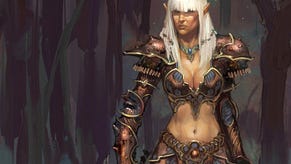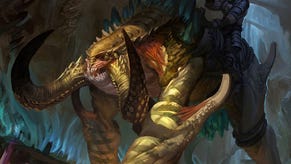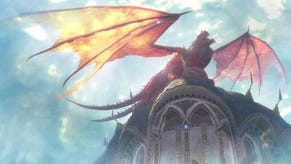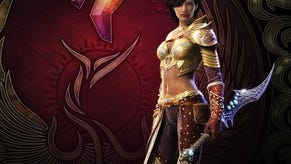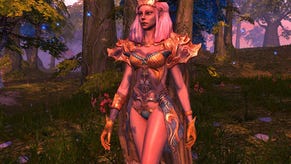Heroes of Telara
Serving up new technology in MMOs.
Hardly a shy débutante, Trion has three games in production using these systems - an "MMO action RPG" being developed in conjunction with a Sci-Fi Channel TV series in San Diego, an MMORTS being made by Petroglyph in Las Vegas, and Heroes of Telara, whose production is based in Redwood City near San Francisco. The technology does sound intriguing, but this level of commitment shows a fairly aggressive level of self-belief from Trion. Can Heroes of Telara justify it?
It's hard to tell, mostly because Trion has chosen to seat its innovative infrastructure in a design and world that are desperately, dispiritingly generic. This is absolutely straight high-fantasy RPG fodder of a sort that normally doesn't succeed unless it has words like "Lord of the Rings" or "Dungeons & Dragons" on the box. In MMOs, it hasn't done so since SOE unleashed its own generic hotch-potch of fantasy cliché, EverQuest, ten years ago. It can be saved by good timing, great artwork or a moment of inspiration, but Telara seems to be blessed with none of these things. It's technically accomplished and blandly pretty, but nothing in its world grabs the attention.
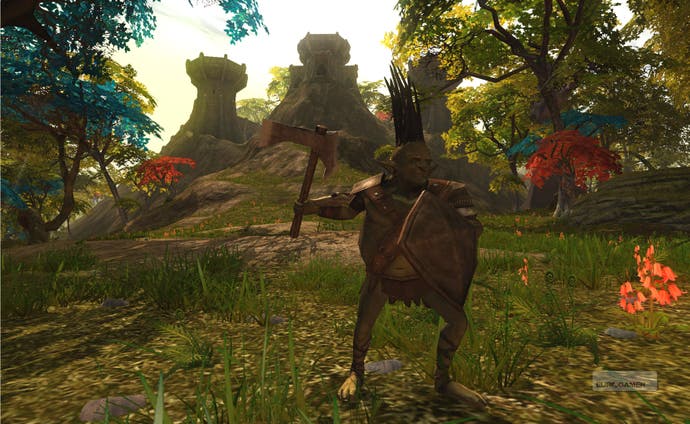
There are the standard four class archetypes: mage, cleric, warrior and rogue. You can play them all on one character, levelling them independently as in the recent free game Runes of Magic, and switching between them in town. There will be "a lot" of sub-classes available, according to Brown, and these can be switched between on a single character at any time, as he demonstrates by changing from a balanced Warrior to a low-defence, high-offence Berserker in the middle of combat, before diving into a Warhammer-style open quest. Sub-classes don't need to be levelled independently, developing in tandem with your main class. Later on we see the Gravelord, another melee fighter who can shoot from range and command pet skeletons. Combat is a straightforward affair of clicking skills on a bar.
The potential for live events afforded by the server-based structure of Heroes of Telara is demonstrated when we return to the peaceful, gated medieval quest-hub town that we set out from. The gates are broken, buildings are on fire and NPC vendors and quest-givers are gone; the town is being ravaged by a sizeable demon and his imps. Demon duly defeated, there's an explosion of fireworks and the townspeople reappear to cheer the victor - but, Brown notes, you could also leave the town to burn to the ground, which would render its amenities unavailable for a while.
On the surface, it's not much different from the instanced events or semi-instanced "phased" world-states you can currently see in WOW and other games, but the difference in Telara is that these events are triggered for everyone on the server, and they can be shaped live by GMs rather than scripted and patched in by designers. It's an exciting step towards an immersive, "living" world, but it does come at a potential cost of convenience - crucial NPC services becoming unavailable to players when they need them, for example. Trion will need to pick its way through this minefield with care, and Brown notes that traditional instanced encounters will also be available.
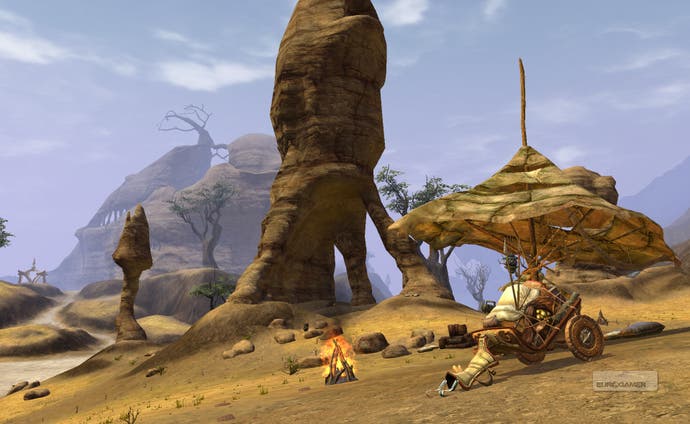
Heroes of Telara is aiming for a PC release in 2010. On the evidence of its E3 showing, its intriguing technology and fluid live events could, if well-managed by an on-the-ball live team, create a distinctly lively and engaging experience for the fantasy MMO fan. The open-ended class system sounds liberating, too.
But if it wants to attract a broader audience and bring home a sizeable slice of that ever-elusive MMO cash pie, Trion will have to try to squeeze a little more personality into Heroes of Telara's derivative fantasy setting. Providing a place players really want to spend time in is one of the hardest and most important tasks facing any MMO developer, and at the moment, the world of Telara looks just like any other, and risks not being noticed at all.

